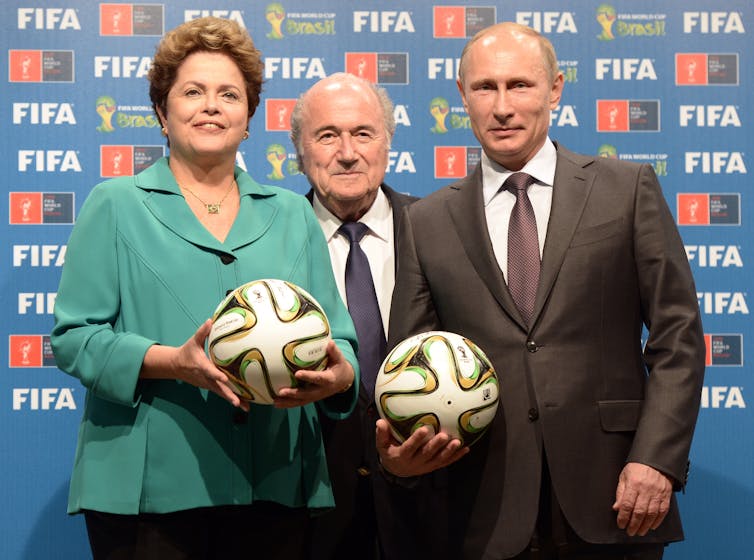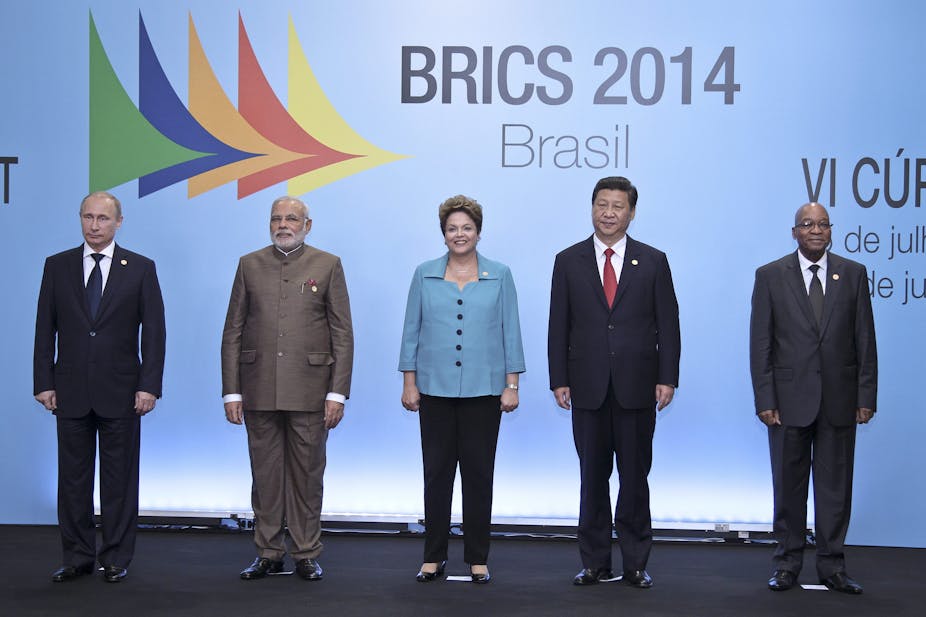Could history one day judge the latest BRICS summit as significant as the Bretton Woods conference of 1944? That is the hope of leaders from Brazil, Russia, India, China, and South Africa as they meet in the city of Fortaleza, Brazil to establish a new institutional architecture to counter (or maybe complement) the Western-controlled finacial system.
The financial crisis of 2008 and its aftermath have fundamentally discredited the post-Cold War international order. With global economic institutions such as the IMF or the World Bank still essentially unreformed and carrying on as if it were still 2007, the BRICS are looking elsewhere. These emerging powers now want to build alternative forms of multilateral economic governance.
In 1944, the new economic order began with a bank and a fund: the International Bank for Reconstruction and Development, which became the World Bank, and the IMF. Today, the BRICS are taking the same approach. The creation of the BRICS’ Development Bank along with a US$100 billion joint reserve fund is the group’s first significant institutional innovation.
In international development, the BRICS partners offer an alternative approach to development assistance vis-à-vis Western-led frameworks. Their increasingly co-ordinated positions will most definitely shape debates in the UN’s post-2015 development agenda, which is due to replace the soon expiring Millennium Development Goals.
Solid BRICS in unstable times
This year’s meeting comes at a time when international politics is particularly complicated and unstable. Syria, Libya, Iraq, Egypt, Israel-Palestine and Ukraine are all putting added pressure on an already exhausted multilateral system and things are unlikely to change. The current stand-off between Russia and the West over Ukraine, and China’s assertive foreign policy and strategic competition with the US in South-East Asia point to great power rivalry increasing throughout this century.
Indeed Ukraine provides a particularly strong example of the BRICS’ independence. None of the other partners criticised Russia for its actions, in sharp contrast to the rhetoric from the US and Western Europe. This is the new geopolitical platform, where emerging powers are increasingly able to operate outside the traditional Western-dominated international decision-making structures.
In that regard, this summit is especially important to Russia. The country the US would like to isolate from polite global society turns out to have friends after all. The Russian president, Vladimir Putin, called for unity: “Together we should think about a system of measures that would help prevent the harassment of countries that do not agree with some foreign policy decisions made by the US and their allies.”
Putin’s trip to Latin America has led to several strategic agreements with Cuba, Brazil and Argentina, the latter on the development of a nuclear power project. For the US, which still considers the Western Hemisphere as its backyard, this is another snub.

A new order
So is the BRICS coalition ready to become the driving force behind the creation of a more representative and equitable post-Western international order?
The answer is (obviously) yes and no. Western attempts to resist reforms will indeed cause links among the BRICS to grow stronger, yet members do not want to see the bloc becoming increasingly controlled by China, the only de facto great power in the group. Furthermore, the group lacks the shared identity and common values which have proved vital to the post-World War II system led by the US. This is, after all, a group first lumped together by a Goldman Sachs economist based on shared demographics and economic indicators rather than anything cultural.
But the material underpinnings of the coalition are definitely robust and by establishing the group’s first real institutions, they have show political will and leadership. Whether the BRICS Bank will become the new World Bank remains to be seen, but if you were a group of countries looking to reshape the international order this would be a great place to start.

